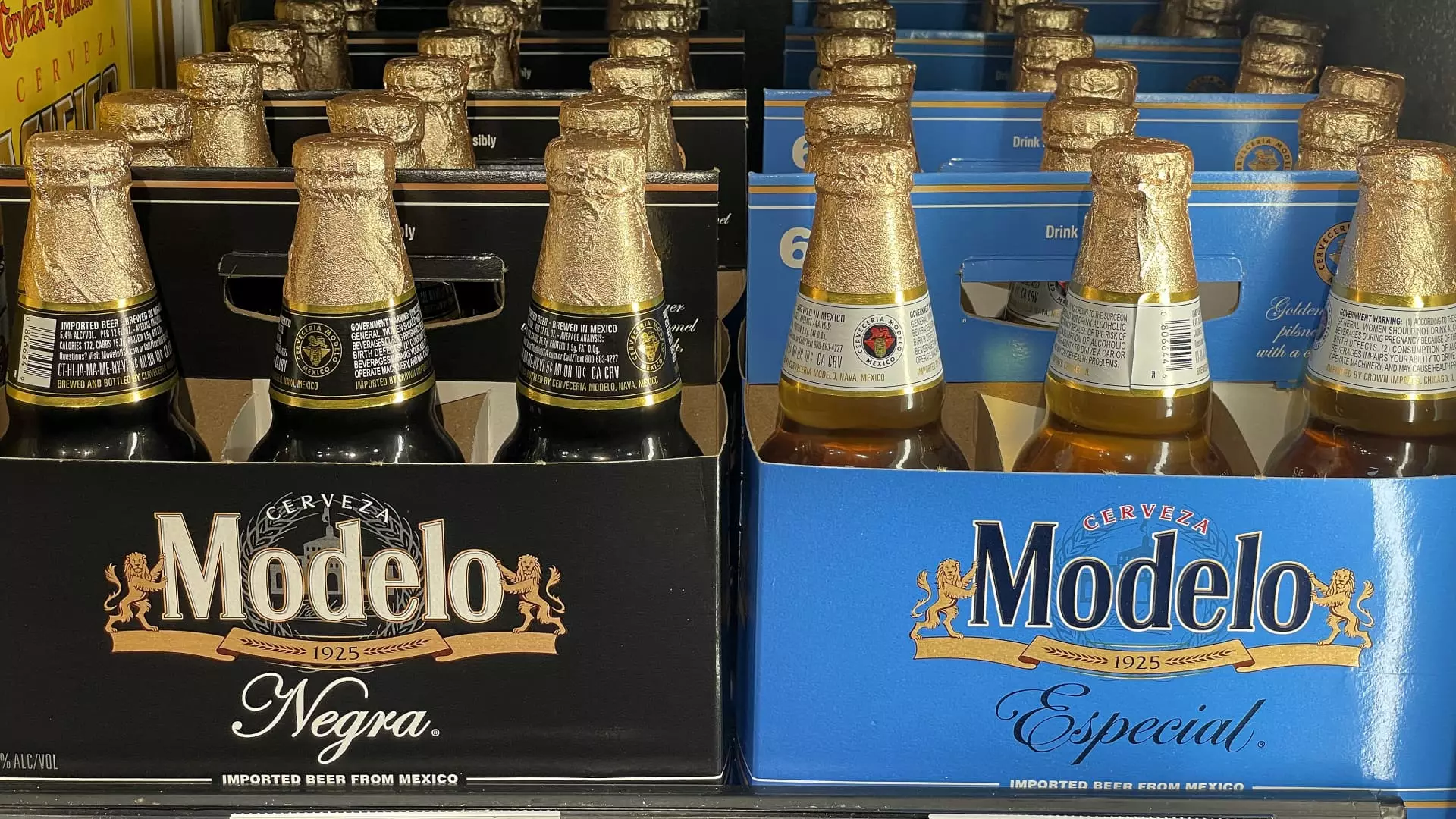The Hidden Struggle: How Immigration Policies are Undermining America’s Beverage Boom

In recent quarters, Constellation Brands has experienced a notable decline in beer sales, and the underlying causes are more than mere market fluctuations. At the heart of this downturn lies a controversial intersection of immigration policy and consumer confidence. Despite its status as a market leader with beloved brands like Modelo, Corona, and Pacifico, the company is feeling the weight of political actions that have created ripples through communities vital to its success. The recent 2% decrease in sales signifies more than a temporary blip—they are emblematic of deeper societal shifts driven by government rhetoric and enforcement tactics.
The tangible impact of these policies manifests in the shrinking purchasing power of Hispanic consumers, who constitute roughly half of Constellation’s customer base. This demographic, traditionally a significant driver of growth in the American beer market, is now reining in discretionary spending. The explanation is not solely economic anxiety, but also a climate of fear spurred by heightened immigration enforcement, including ICE raids that disrupt community stability. When families face uncertainty, consumer confidence crumbles, and non-essential expenditures—like premium beers—become a casualty.
Political Climate Undermining Consumer Trust
The policy environment instilled by the current administration has sown a climate of mistrust among many Latino Americans, impacting their spending habits. CEO Bill Newlands has hinted at these challenges, highlighting the difficulty in forecasting demand amid growing concern over both inflation and immigration enforcement. While he avoided pinning the slowdown directly on Hispanic consumers, his acknowledgment reveals a quieter recognition of the destabilizing influence of political turbulence on a key market segment.
This situation exposes a fragile relationship between government policy and economic vitality. When policies threaten the social fabric of a community, the consequences extend beyond immediate social tensions. Consumer behavior, an intricate and sensitive facet of economic health, can be profoundly affected by perceptions of safety and belonging. The muted consumption by Latino households exemplifies how political decisions can erode sectors that rely on cultural and community loyalty.
Broader Industry Implications and a Cautionary Tale
Constellation’s experience is not isolated. Major corporations like Coca-Cola and Colgate-Palmolive have reported similar downturns in Hispanic consumer demand. These companies, like Constellation, often depend on authentic engagement with cultural communities to sustain growth. When policies threaten that trust, economic repercussions follow. This pattern should serve as a cautionary tale for policymakers: economic prosperity depends on social cohesion and inclusivity, not enforcement-driven fear.
The current scenario underscores the delicate balance between national security measures and economic stability. While immigration enforcement is a legitimate concern for many governments, its execution must be carefully calibrated to avoid damaging the very communities that fuel economic vibrancy. Turning a blind eye to this reality risks not just alienating a vital demographic, but also destabilizing industries that are significant contributors to national output.
By standing at this crossroads, policymakers have an opportunity—if they choose to recognize it—to foster an environment where economic growth and social security are not mutually exclusive. Instead of policies that instill fear and division, adopting a pragmatic, inclusive approach could not only restore consumer confidence but also reinforce America’s long-term economic resilience.





